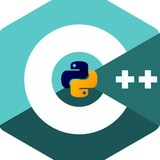Scientific Programming
Brian workshop, 9 Sep, 16-19 Iran time. The material will be uploaded here. To install the required package look here. Please fill the google form for the registration (free of charge). (Register) The language of workshop will be in Farsi (Excuseme nonpersian…
YouTube
Brian Workshop intro [Farsi]
https://github.com/Ziaeemehr/workshop_brian/tree/master/workshop_09_2020/INTRO
🍀 The Algorithms - Python
A beautiful and well-maintained repository of some classic and well-known algorithms from many different domains. This resource can help you understand how to implement algorithms while practicing programming using Python.
https://github.com/TheAlgorithms/Python
@omarsar0
A beautiful and well-maintained repository of some classic and well-known algorithms from many different domains. This resource can help you understand how to implement algorithms while practicing programming using Python.
https://github.com/TheAlgorithms/Python
@omarsar0
Information theory and self-organisation -- a course on theory and empiricial analysis using the JIDT software
This playlist presents video lectures from a course on using information theory for analysing complex systems, with particular focuses on:
1. Measures of information dynamics: how information is processed in complex systems, including measures of information storage and transfer;
2. Empirical data analysis using the JIDT open-source software - https://github.com/jlizier/jidt
Full course overview, slides and activities will be available from the JIDT wiki at
https://github.com/jlizier/jidt/wiki/Course
This playlist presents video lectures from a course on using information theory for analysing complex systems, with particular focuses on:
1. Measures of information dynamics: how information is processed in complex systems, including measures of information storage and transfer;
2. Empirical data analysis using the JIDT open-source software - https://github.com/jlizier/jidt
Full course overview, slides and activities will be available from the JIDT wiki at
https://github.com/jlizier/jidt/wiki/Course
YouTube
Information theory and self-organisation -- a course on theory and empiricial analysis using the JIDT software
This playlist presents video lectures from a course on using information theory for analysing complex systems, with particular focuses on: 1. Measures of inf...
A curated list of awesome machine learning frameworks, libraries and software (by language)
https://github.com/josephmisiti/awesome-machine-learning
https://github.com/josephmisiti/awesome-machine-learning
GitHub
GitHub - josephmisiti/awesome-machine-learning: A curated list of awesome Machine Learning frameworks, libraries and software.
A curated list of awesome Machine Learning frameworks, libraries and software. - josephmisiti/awesome-machine-learning
https://braincriticality.org/
Brain Criticality Virtual Conference 2020 6-8 Oct
Brain Criticality Virtual Conference 2020 6-8 Oct
BrainCriticality.org
This meeting intends to gather recent contributions in the field of systems neuroscience, with the purpose of further discussing the role of criticality and its implications in the dynamics of large neuronal populations, functional and structural connectivity…
Every data scientist should know
#mysql by Mosh
To get the files and databases for this course look at here
Youtube
#mysql by Mosh
To get the files and databases for this course look at here
Youtube
Codewithmosh
5- Creating the Databases
Everything you need to design and query databases in one course
In a scientific project, there is always a high chance of encountering logical errors that are emerging from dimensions and units. These types of errors are very hard to detect. Hopefully, C++ and other strongly-typed languages help us to avoid such logical errors. One way is to attach units to values to avoid meaningless computation and detect unit-related errors.
For example, it is meaningless to pass a dimensional quantity to a cosine or exponential function. In the same way, it does not make sense to assign a mass to a quantity with a velocity dimension. The STUDIS library is designed to catch such errors at compile-time.
Here is the link to the library:
https://github.com/DiscreteLogarithm/studis
Link to post
For example, it is meaningless to pass a dimensional quantity to a cosine or exponential function. In the same way, it does not make sense to assign a mass to a quantity with a velocity dimension. The STUDIS library is designed to catch such errors at compile-time.
Here is the link to the library:
https://github.com/DiscreteLogarithm/studis
Link to post
high quality.mp4
16.7 MB
High quality video of above post.
Mouse brain imaging.
Mouse brain imaging.
JiTCODE (just-in-time compilation for ordinary differential equations) is an extension of SciPy’s ODE (scipy.integrate.ode) or Solve IVP (scipy.integrate.solve_ivp). Where the latter take a Python function as an argument, JiTCODE takes an iterable (or generator function or dictionary) of symbolic expressions, which it translates to C code, compiles on the fly, and uses as the function to feed into SciPy’s ODE or Solve IVP. Symbolic expressions are mostly handled by SymEngine, SymPy’s compiled-backend-to-be (see SymPy vs. SymEngine for details).
https://jitcode.readthedocs.io/en/v1.6.0/#
https://jitcode.readthedocs.io/en/v1.6.0/#
JiTCDDE (just-in-time compilation for delay differential equations) is a standalone Python implementation of the DDE integration method proposed by Shampine and Thompson [ST01], which in turn employs the Bogacki–Shampine Runge–Kutta pair [BS89]. JiTCDDE is designed in analogy to JiTCODE (which is handled very similarly to SciPy’s ODE (scipy.integrate.ode)): It takes an iterable (or generator function or dictionary) of symbolic expressions, translates them to C code, compiles them and an integrator wrapped around them on the fly, and allows you to operate this integrator from Python. Symbolic expressions are mostly handled by SymEngine, SymPy’s compiled-backend-to-be (see SymPy vs. SymEngine for details).
https://jitcdde.readthedocs.io/en/stable/
https://jitcdde.readthedocs.io/en/stable/
talk_optimization.pdf
11.7 MB
Visual introduction to optimization in Deep Learning, ranging from 1st-order methods, 2nd-order and Natural Gradient (and approximations of it such as K-FAC). Sharing the PDF (easier to download): https://t.co/pGP3mLNElt https://t.co/cs3SdQ4TNm
JiTCSDE (just-in-time compilation for stochastic differential equations) is a standalone Python implementation of the adaptive integration method proposed by Rackauckas and Nie [RN17], which in turn employs Rößler-type stochastic Runge–Kutta methods [R10]. It can handle both Itō and Stratonovich SDEs, converting the latter internally. JiTCSDE is designed in analogy to JiTCODE (which is handled very similarly to SciPy’s ODE (scipy.integrate.ode)): It takes iterables (or generator functions or dictionaries) of symbolic expressions, translates them to C code, compiles them and an integrator wrapped around them on the fly, and allows you to operate this integrator from Python. Symbolic expressions are mostly handled by SymEngine, SymPy’s compiled-backend-to-be (see SymPy vs. SymEngine for details).
https://jitcsde.readthedocs.io/en/v1.6.0/
https://jitcsde.readthedocs.io/en/v1.6.0/
